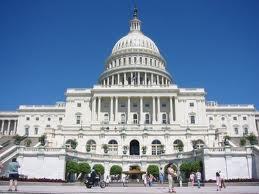by
Brendon Nafziger, DOTmed News Associate Editor | October 06, 2011
A Medicare Payment Advisory Commission panel voted 15-2 Thursday to approve a controversial 10-year proposal to lift the sustainable growth rate formula by freezing the current Medicare reimbursement rate to primary care doctors and slashing pay to specialists.
The plan, first floated last month, was swiftly condemned by medical societies, who saw it as a divisive move that would discourage medical students from joining specialist fields and whose across-the-board pay freezes would fall hard on doctors already feeling the pinch.
"This decision is unacceptable and fails to carve out a comprehensive payment reform plan, enhance Medicare beneficiary access or promote quality or resource stewardship," Dr. Jack Lewin, CEO of the American College of Cardiology, responded on the group's blog Thursday. "ACC believes that physicians should be paid for quality and care coordination, not their specialty designation."
Lewin added that MedPAC had "abandoned their focus on what are the most appropriate payments to maintain access" in an attempt to "fix a Congressional mistake."
More than 40 societies initially condemned the plan, when it was first announced last month. The American Medical Society's president, Dr. Peter Carmel, said in a statement Thursday that "offsetting part of the cost of repeal through drastic cuts and long-term freezes to physicians falls far short of what is needed to preserve patients' access to care."
The offspring of a bout of budget-hawkery in the early 1990s, the SGR is meant to keep Medicare payments to doctors in line with the growth of the economy. Long delayed, if it should go into effect this January, as scheduled, it would represent a 29.4 percent cut to physicians' Medicare reimbursements.
But overturning it for the next 10 years is expected to cost upward of $300 billion. To partly cover that huge expense, MedPAC's plan calls for specialists to receive 5.9 percent cuts per year for the first three years, followed by seven years of pay freezes. Primary care doctors would have their pay frozen for the 10 years of the program.
Other savings would come from cuts to hospitals, pharmaceutical companies, laboratories, beneficiaries and others.
“We simply can't support a proposal that aims to solve one problem by creating another,” American Academy of Neurology CEO Catherine M. Rydell said on the group’s website. “We can and need to do better to meaningfully reform a system so important to America's seniors.”
MedPAC's vote comes right before an Oct. 14 deadline on congressional recommendations to the Super Committee, a group of 12 lawmakers who have to find a way to slash $1.5 trillion from the deficit by the end of the year.
Back to HCB News
